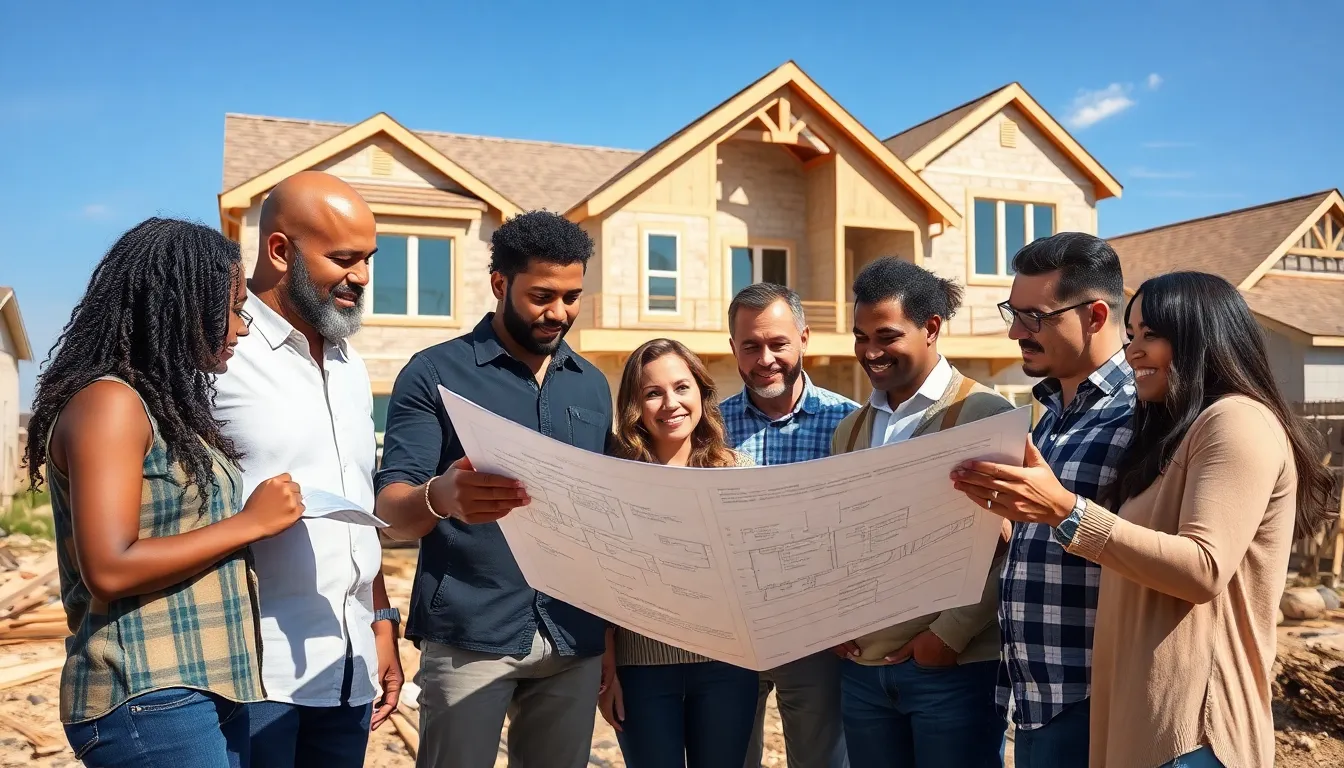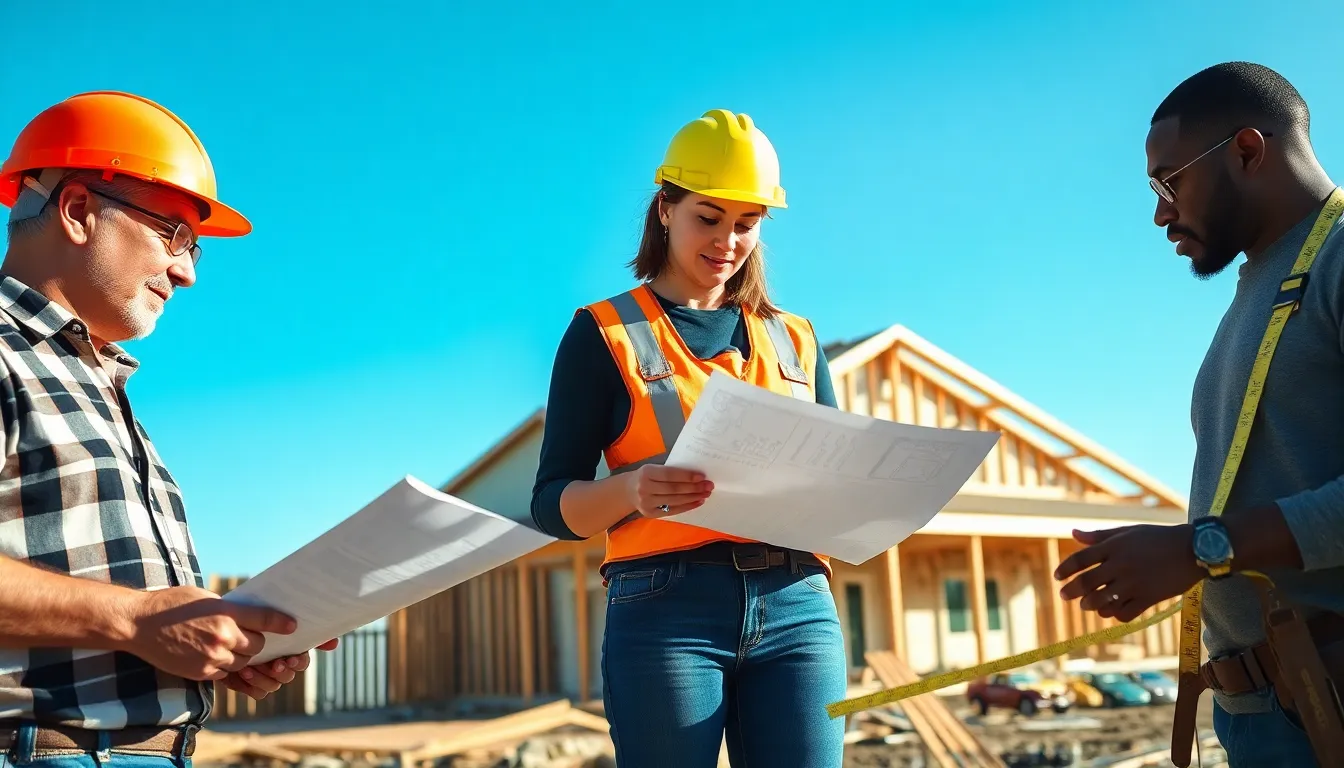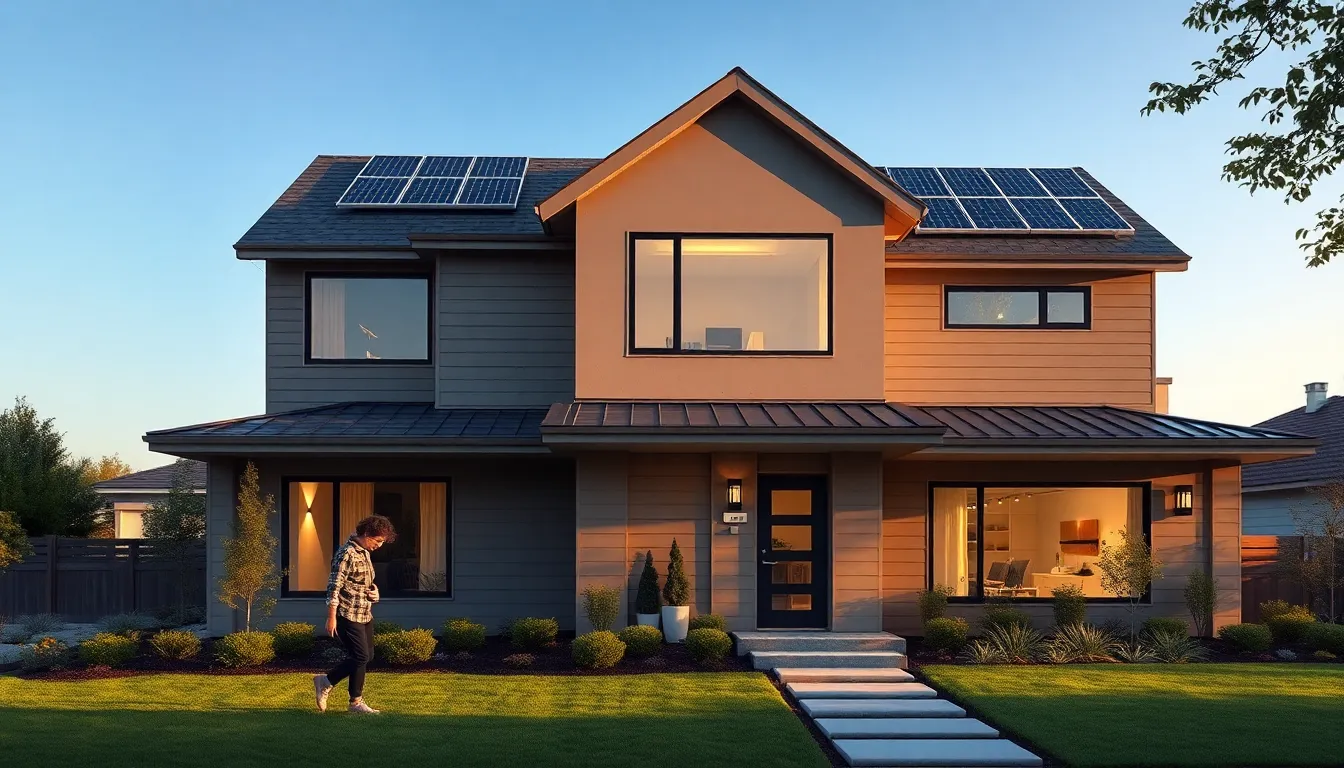In the ever-evolving world of real estate, home builders play a vital role in shaping communities and fulfilling dreams. They transform blueprints into reality, crafting spaces where families create memories and lives unfold. With a keen eye for design and a commitment to quality, these professionals navigate the complexities of construction, ensuring every detail aligns with their clients’ visions.
As the demand for new homes continues to rise, understanding the nuances of home building becomes essential for potential homeowners. From selecting the right builder to exploring innovative materials and sustainable practices, the journey to a new home is filled with decisions that can significantly impact the outcome. This article delves into the key aspects of home building, offering insights that empower buyers and highlight the expertise of builders in today’s market.
Table of Contents
ToggleWhat Are Home Builders?
Home builders are professionals or companies specializing in the construction of residential properties. These entities transform architectural designs into tangible homes, catering to a variety of styles and preferences. They play a crucial role in the home building process, managing tasks such as site preparation, construction, and coordination of subcontractors.
Home builders often focus on several key areas:
- Custom Home Building: They work closely with clients to develop unique designs tailored to individual needs. Custom builders prioritize personalization and attention to detail.
- Production Home Building: They construct multiple homes based on a predefined set of plans, often within communities. This approach simplifies the home buying process while maintaining affordability.
- Speculative Building: They build homes without a specific buyer in mind, anticipating market demand. This option allows builders to showcase their work and attract potential buyers.
Home builders remain informed about the latest trends in materials and technologies. They often incorporate sustainable practices, such as energy-efficient systems and eco-friendly materials, to meet the growing demand for environmentally responsible homes. Their expertise enables them to navigate zoning regulations, permits, and financing options, ensuring a smooth construction process.
Types of Home Builders

Understanding the various types of home builders is vital for potential homeowners. Each category caters to different needs and preferences in the housing market.
Custom Home Builders
Custom home builders focus on creating unique, personalized homes tailored to individual buyers’ specifications. They work closely with clients to design homes that match specific lifestyle requirements and aesthetic preferences. Custom builders typically handle the entire construction process, from initial design concepts to final finishes. This approach allows for greater flexibility in selecting materials, layouts, and energy-efficient technologies, making it a favored option for those seeking distinct, one-of-a-kind residences.
Production Home Builders
Production home builders specialize in constructing multiple homes using established designs and plans. They often develop large-scale housing projects with various models available for buyers. By relying on standardized designs, these builders can streamline the construction process, resulting in cost-effective solutions that appeal to budget-conscious buyers. Production builders may offer some customization options, but the scope is generally limited to predetermined choices, making it ideal for consumers looking for a quick turnaround.
Modular Home Builders
Modular home builders create homes in a factory setting, assembling sections or modules before transporting them to the site for final construction. This method allows for efficient construction timelines and often reduces waste, contributing to more environmentally friendly practices. Modular homes meet the same building codes as traditional homes, ensuring durability and safety. Buyers benefit from lower costs associated with the streamlined building process while still enjoying design options that reflect their preferences.
Factors to Consider When Choosing Home Builders
Selecting the right home builder requires careful evaluation of several key factors. Potential homeowners should prioritize experience, licensing, insurance, and communication to ensure a successful project.
Experience and Reputation
Experience and reputation play critical roles in selecting a home builder. Consider builders with a proven track record, as they possess the skills necessary to handle various challenges throughout the construction process. Review their portfolio of completed projects for insight into their craftsmanship and attention to detail. Seek feedback from past clients through testimonials or online reviews. A builder’s reputation can often reflect their reliability, quality of work, and customer satisfaction.
Licensing and Insurance
Licensing and insurance are non-negotiable aspects when evaluating home builders. Verify that the builder holds the required licenses for your state or local area, as regulations vary by location. Adequate insurance coverage, including liability and workers’ compensation, protects both the homeowner and the builder during construction. Confirming these credentials beforehand avoids potential legal issues and enhances peace of mind throughout the building journey.
Communication and Support
Communication and support are essential for a successful partnership with a home builder. Choose builders who maintain open lines of communication and keep homeowners informed at every project stage. Discuss timelines, budget constraints, and any changes that may arise. Effective communication fosters collaboration, ensures transparency, and allows for timely resolution of concerns. An attentive builder can often make a significant difference in the overall client experience.
The Home Building Process
Understanding the home building process is essential for potential homeowners. This process involves several key steps that ensure the successful completion of a new home.
Initial Consultation
Initial consultations establish the foundation for the home building journey. During this meeting, homeowners discuss their vision, budget, and timeline with the chosen builder. Builders review site specifics and determine feasible options for the project. Establishing open communication from the outset fosters trust and alignment between the builder and the homeowner, ensuring that expectations are clear.
Design and Planning
After the initial consultation, the design and planning phase commences. Homeowners collaborate with architects and builders to create an architectural plan that reflects their preferences. Choices involve selecting materials, layouts, and energy-efficient features. Builders help navigate zoning regulations and permit requirements, ensuring that all elements align with local codes. A detailed project timeline is developed, outlining key milestones and deadlines, which aids in managing expectations and maintaining accountability.
Construction Phase
The construction phase brings the design to life. Home builders oversee site preparation, foundation work, and the overall construction process. Builders coordinate skilled subcontractors for specialized tasks, such as electrical and plumbing work. Regular site inspections occur to ensure quality standards are met. Homeowners are kept informed through frequent updates, allowing for adjustments or changes as needed. This phase culminates in the completion of a home that meets the homeowner’s specifications and expectations.
Home builders play an essential role in creating the foundation of communities and ensuring families have spaces to thrive. By understanding the different types of builders and the home building process, potential homeowners can make informed decisions that align with their vision and budget.
Prioritizing experience and communication when selecting a builder can lead to a successful partnership. As the demand for innovative and sustainable homes continues to rise, choosing the right builder becomes increasingly important. With the right guidance, homeowners can navigate the complexities of construction and ultimately enjoy a home that reflects their lifestyle and values.



